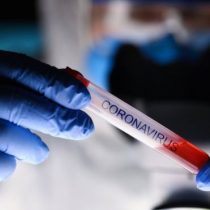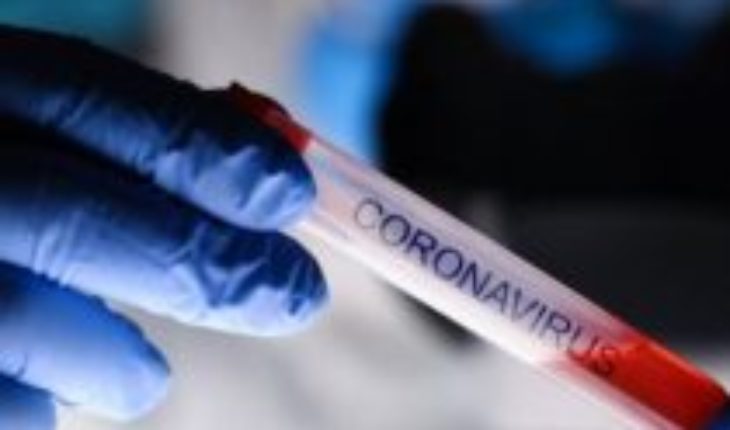
The first step in defeating an enemy is to identify them, know how it behaves, and try to predict what your next move will be.
But what if in the middle of battle the enemy transforms and the weapons we prepared against him no longer work?
That’s one of the questions that scientists are working around the clock to find a vaccine or treatment that can control the pandemic of the new coronavirus.
5 strategies that are working in countries that have managed to contain coronavirus infections
Researchers already know the genome of SARS-CoV-2, the virus that causes covid-19 disease. That’s a breakthrough, but what if you suddenly start noticing that the virus is mutating?
Would that make it more dangerous for humans?
SARS-CoV-2 causes covid-19 disease. Routine process
The word mutation sounds dramatic, but it’s actually part of the routine of ribonucleic acid (RNA) viruses that carry genetic information from the virus.
“The mutation is a monotonous aspect of life for an RNA virus (such as coronavirus),” he wrote in a recent article in the journal Nature microbiologist Nathan Grubaugh, professor of epidemiology at Yale University’s medical school in the United States.
The advantages of Latin America in combating coronavirus
As a virus reproduces by making copies of itself, it generates errors in its genome that are transferred to future copies of the virus.
Viruses have an RNA “prone to error,” Grubaugh explains, so they accumulate mutations in each copy cycle.
The expert, however, explains that most of these mutations negatively impact some functions of the virus and are removed by natural selection.
Coronavirus is made up of RNA chains.” The mutation is an inevitable consequence of being a virus,” says Grubaugh, who argues that the mutation of a virus is not a cause for concern during the outbreak of a disease.
The case of coronavirus
Is the coronavirus mutating?
“Yes, all RNA viruses mutate, but very few of these mutations bring any advantage to the virus,” George Rutherford, professor of epidemiology at the University of California, San Francisco, is told to BBC World.
And it’s mutating faster than other viruses? “It mutates at the same speed, more or less, as other RNA viruses,” Rutherford says.
The Italian people who managed to contain the virus expansion with a “unique in the world” experiment
In early March, a study in Wuhan, China, with 103 covid-19 patients suggested that coronavirus had mutated into at least two new strains, one more aggressive and one less aggressive than coronavirus that has been spreading.
Many of the mutations in a virus affect it negatively. This research, however, did not convince several scientists.
Grubaugh, for example, said the study’s findings were “pure speculation,” as the changes they had found were so insignificant that they could not be considered new strains.
Richard Neher, a biologist and physician at Basel University in Switzerland, referred to the alleged discovery of a new, more aggressive strain as a “statistical device,” related to the region where the tests were conducted.
The study’s authors, for their part, warned that their research was based on “very limited” information.
Stanley Perlman, a virologist at the University of Iowa, who worked on the international committee that gave the coronavirus its name, told the newspaper The Washington Post that the virus “has not mutated significantly.”
In an interview with BBC Mundo Tarik Jasarevic, spokesman for the World Health Organization (WHO), said that “so far we have no evidence of any change in the virus.”
Experts say that so far SARS-CoV-2 has not mutated significantly.
“If the virus doesn’t change, it’s easier to find possible solutions,” says WHO’s Jasarevic.
A stable virus, as SARS-CoV-2 has so far shown to be, allows scientists to better understand what they are up against.
How to differentiate covid-19 symptoms from flu, cold or allergic rhinitis?
It is useful, for example, to know how long the virus has been circulating among the population, Rutherford explains.
The stability of SARS-CoV-2 could also be an advantage for the development of a vaccine.
So far there is no effective treatment or vaccine against coronavirus. In an article in the magazine Science Andrew Rambaut, molecular evolutionary biologist at the University of Edinburgh, explains that SARS-CoV-2 accumulates on average between one and two mutations per month.
“That’s two to four times slower than the flu.”
The flu virus mutates much faster, so a new vaccine is needed every year. This occurs because the human body is no longer immune to the new version of the virus.
Peter Thielen, a molecular geneticist at Johns Hopkins University, says that only four to 10 genetic differences have been seen between the strains that have infected people in the United States and the original virus that spread in Wuhan.
3 Latin American scientists at the forefront of the fight against coronavirus (and the challenges they face)
Experts are confident that a single vaccine could be effective against SARS-CoV-2.” That’s a relatively low number of mutations (for a virus) that has passed through a lot of people,” Thielen told the newspaper The Washington Post.
“At this point, the virus mutation rate would suggest that the vaccine developed for SARS-CoV-2 would be a single vaccine, rather than a new vaccine each year, such as the flu vaccine.”
On a Twitter thread, vaccine biologist Trevor Bedford calculated that based on the occasional mutations SARS-CoV-2 might have, it would take the virus “a few years instead of months” to mutate enough to “significantly inhibit” the virus effect of a vaccine.
Experts estimate that getting an effective covid-19 vaccine could take between a year and 18 months.





